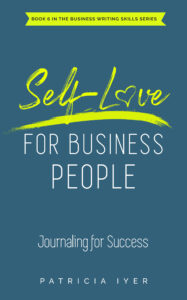LNC Journaling Best Practices
LNC Journaling Best Practices
If you love how-tos, you’ll enjoy this article.
Write whatever you want to write, whatever comes into your mind.
Some people who write about journaling suggest you may want to show your journals to others, especially your children. That idea would be enough to freeze many people’s fingers, mine included. You’re far more likely to write freely if you tell yourself, “This is for me, only for me.”
If you write in a paper journal, find a good hiding place. If you use the computer and you feel nervous about someone discovering what you’ve written, make the file or folder password-protected
Write about your joys, triumphs and pleasures. Write about your worries, which releases a lot of anxiety. Complain about things you have to do. Give yourself the freedom to say anything you want.
Be Patient with the Process
When you grow more comfortable with the process, you will express yourself more easily.
Journaling lets you uncover your creativity.
If you’re still thinking, “I’m not creative,” I have one comment. Yes, you are. Everyone is creative. We direct our lives with a mixture of intuitive and creative thinking. I don’t need to dream up new ways to brush my teeth or patterns to grow my cells. I’m happy to do many things in my life automatically and to let my body take charge of countless functions.
However, if I want my life to be exciting and I want to solve challenges, I have to think creatively—whether I ever write a book, article, or email.
Where many—if not most—people get stuck is in a gray area that could be called semi-automatic. We do things the way we’ve always done, and people in our particular cultures have always done them.
As children, we unknowingly take on the beliefs and perspectives of significant adults in our lives. These habitual mental patterns interfere with creativity.
A Writing Practice Loosens the Hold of Habitual Thinking
As you continue to write, you’ll see the patterns that have automatically affected you. If you write, “It’s unfair that I don’t have enough money,” you may remember that you’ve written a lot. You might realize that you see the world of money as unfair, and that’s just how it is. Life has a way of fulfilling our expectations.
You can make even more discoveries when you re-read what you’ve written. Julia Cameron recommends initially waiting a month, but you may want to read each week’s writing afterward. You’ll learn much about what you didn’t know you were thinking.
Take a business book you are reading and use it to stir up insights that you document in your journal. By recording your thoughts, you’ll lock in more of the book’s value and have a record of how the book stimulated you.
LNC Journaling 12 Best Practices
Remember, this journal is for you, ONLY for you.
Use a consistent method – dictation into a voice dictation app, typing, handwriting.
- Commit to writing every day or at the frequency you can sustain.
- Choose a time when you won’t be disturbed.
- If you find that schedule difficult at first, don’t beat yourself up. Or write about how you want to beat yourself up.
- Write whatever comes into your mind without censorship. I emphasize “without censorship.”
- If your thoughts bore you, write them down anyway. You have to dig through a lot of dirt to find treasures.
- If your writing disturbs you, you’re on track for a discovery.
- Develop a spirit of curiosity about your inner self.
- Limit your urge to edit. It is OK to have typos.
- Add a date to your entries.
- Once a week, re-read what you’ve written.
- Do the same once a month.
- Have patience with the process.
If you start typing your pages on a computer and don’t feel connected to the process, you may get better results from handwriting. Some studies have shown that writing provides tactile pleasure. You can enhance that enjoyment by buying a blank book with a cover that appeals to you.
In contrast, cellphone and tablet lovers may find that these devices provide the perfect medium for journaling. You can find a journaling app.
LNC Journaling Prompts
A particular method I’ve discovered to obstacles to writing is that the first word is to collect quotations or other forms of prompts. Prompts help you overcome the blank page syndrome. And stimulate you to consider various aspects of your life as a small business owner. Tackle your goals, accomplishments, finances, people issues, operations, improvement, etc.
Click here to request a set of writing prompts to get you started.
Where can you put prompts? Save them in the notes feature of your phone, a file on your computer, or a printed list in a physical journal. Once you are clear on the benefits of journaling and begin to experience them, use the prompts to facilitate achieving your goals. They will help you focus on the positive, envision your successes, and encourage you to look at your weak areas.
Here are some examples.
“The bad news is time flies. The good news is you’re the pilot.”
— Michael Altshuler
“Keep your face always toward the sunshine, and shadows will fall behind you.”
— Walt Whitman
“You make a choice: continue living your life feeling muddled in this abyss of self-misunderstanding, or you find your identity independent of it. You draw your own box.”
— Duchess Meghan
“You are never too old to set another goal or to dream a new dream.”
— Malala Yousafzai
“For me, becoming isn’t about arriving somewhere or achieving a certain aim. I see it instead as forward motion, a means of evolving, a way to reach continuously toward a better self. The journey doesn’t end.”
— Michelle Obama
You can also make a list of long-term issues you want to address.
- I would like to investigate a new business.
- How can I prepare my children to grow up and leave the house?
- I’m afraid of getting old.
LNC Journaling Top Tip
 Don’t proofread or edit what you write. This process may cause you pain. Doing it only interrupts the connection between your conscious and unconscious mind, and it can be an attempt at self-sabotage. The more freely your thoughts flow, the more benefit you’ll receive.
Don’t proofread or edit what you write. This process may cause you pain. Doing it only interrupts the connection between your conscious and unconscious mind, and it can be an attempt at self-sabotage. The more freely your thoughts flow, the more benefit you’ll receive.
Sometimes it helps to calm your mind in preparation for writing. Put on some relaxing music, and have tea beside you. Breathe in and out deeply. Say to yourself, “This is my time.”
Order Self-Love for Business People: Journaling for Success at this link.

Pat Iyer is president of The Pat Iyer Group, which develops resources to assist LNCs in obtaining more clients, making more money, and achieving their business goals and dreams.
Pat’s related websites include the continuing education provided on LNCEU.com, the podcasts broadcast at podcast.legalnursebusiness.com, and writing tips supplied at patiyer.com.
Get all of Pat’s content in one place by downloading the mobile app, Expert Edu at www.legalnursebusiness.com/expertedu. Watch videos, listen to podcasts, read blogs, watch online courses and training, and more.


